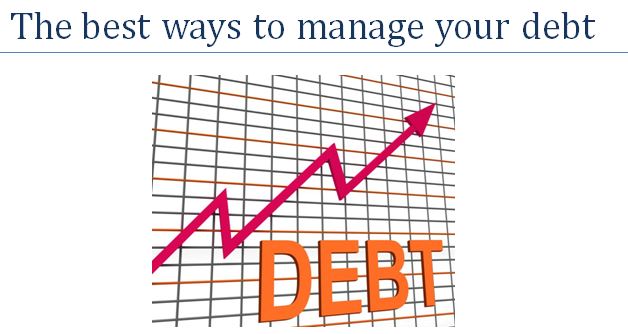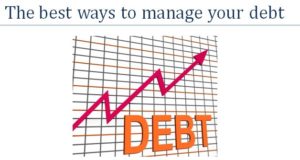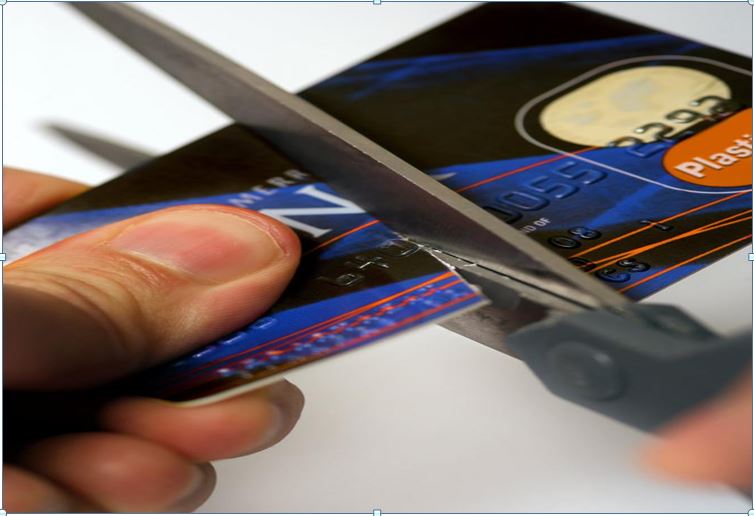
by Ajay Oberoi | Bankruptcy, Consumer Proposal, Credit Counseling, Credit Repair, Debt Management, Portfolio, Social Media
Some people do not get a steady income like salespeople, freelancers, or people who are self-employed. They actually face a lot of problems due to fluctuating incomes. It is a nightmare to plan a budget when you have no idea about how much you are going to earn each month. This is a serious problem for those who work on a commission basis or are self-employed.
The income they get depends entirely on their monthly sales or projects they get. Well, if you are among those who earn a fluctuating income and find it really difficult to plan a budget, then read on to find out how you can still plan a budget.
Identify the minimum amount you earn
Before you start creating a budget with fluctuating income, you need to identify the minimum amount you earn. Also, determine your minimum expenses on a monthly basis. For all those who earn a fluctuating income, plan their budget keeping in mind their expenses related to basic necessities like house mortgage or rent, groceries, utility bills, groceries, childcare, transportation, etc.
While following any budget plan it is really important to find out how much you need to make to bear your bills. But, in this case, this step won’t work as the income is not steady. To create a budget for fluctuating incomes just write down the list of essential things and monthly expenses on a paper.
Out of the expenses you have listed there are some fixed expenses like rent, mortgage, etc. Now, try to figure out the expenses that change. They can be grocery bills, traveling expenses, utility gas, etc. Also, write down debt repayments, savings, investment, etc. You may think that these bills aren’t crucial to survive still they are quite important.
Calculate monthly expenses that are optional
After you filter out the essentials then try to list all other things. While writing down the optional expenses consider the bill for cable television or any other payments you make for entertainment, hobbies, cash spent on sports, or money spent to dine out.
If you are unable to find out the approx spending on non-essentials then pull out some credit card or bank statements to check. Also, try to find out something that had overburdened your pocket in the last few months.
Create emergency fund
In case you hold some savings already then nothing like it. It is always better to have savings of money for 3-6 months. It helps especially when you have a fluctuating income.
It is always better to create an emergency fund to fight days when you don’t earn a sufficient amount or say nothing. Savings can bridge the difficulties in crucial times.
Staying on income from last month
Once you created a budget for your fluctuating income and included your unnecessary expenses then you will come to know the amount of money you need for the month without disturbing your savings. You can deposit the money you get the previous month to your savings account.
You can start putting whatever you earn in short term or long term savings whichever suits you. This helps you stay on income from last month.
Credit a salary for yourself
It is again a step ahead of how you were advised to put your money in a regular savings account in the very first month. Here you will be paying salary to yourself. You may be wondering how is that possible isn’t it? Think about times when you were working hard and earning a fluctuating income but here you will award yourself with a salary.
You can follow the budget for fluctuating incomes and eliminate optional spending which will save money for you. Now you will not end up spending more than earnings.
Pay bills depending upon the income you earned last month
The money you need for your fluctuating bills, as well as nonessentials, is there in checking account. The right budget that comprises of your expenses and bills for the month is what you have now.
Now you will start paying your bills as per the budget you created that consists of debt payments or paying savings. If you need an individual account for long term savings then go for it. You can also put some cash back to the regular savings accounts every month and see how money grows.
Mark all your bids as paid and put a zero at the end
As not all bills will be due at the start of the month, you need a proper system to keep track of your spending as the month passes.
Make sure you pay every bill right at the beginning of the month. Pay your mortgage or other bills in the second week of the month. If you are planning to spend on entertainment then make sure you do not spend more. Keep your bills marked as paid
It is not easy to plan a budget with a fluctuating income, but with a proper budget, you can accomplish the task. While you create a budget for fluctuating budgets make sure you find ways that can help you get a steady income. Also, if you succeed to earn more in between, try to save money for the days when you either earn less or absolutely nothing. Do not rely on monthly income; try to save for 3-6 months to have a stable amount in your bank that can back you for at least a month during no or less work.
If you can find income coming from more than one source, it will help you earn a stable income or constant money incoming to your account. Try not to spend on entertainment or things that are not essential. You have to go slow and figure out things that need money on a priority basis. You can create a budget plan for fluctuating income and follow it too. With little dedication and smart planning, you can achieve your goals with irregular income too. It may sound a bit difficult, but it works and with the time you will get used to it. Any help for financial problems contact gtacredit.com or call 416 650 1100

by admin | Bankruptcy, Consumer Proposal
Debt is something that comes with lots of complications and negativity. Still, some people find debt as a way of living. Sometimes, debts can get so excessive that no matter how much you try, you just cannot pay them off, which leaves you with the only option of declaring bankruptcy.
Better financial management throughout your life can make you avoid living off debts. Even if you acquire debts for some important reasons, you need to ensure efficient debt management in order to prevent yourself from bankruptcy.
Bankruptcy can provide total financial relief in some cases, but mostly, bankruptcy can cause some other complications, such as very poor credit score, inability to file for mortgages soon after a bankruptcy discharge, and more. Therefore, you must look to avoid bankruptcy at all costs.
Here are 7 essential tips on avoiding bankruptcy.
1. Sell your assets
Selling your assets is the first thing you should be doing as soon as you see signs of you not being able to make regular debt payments. These assets can be anything – jewelry, furniture, other household items, etc. Sell them and use the money to pay off debts in order to avoid bankruptcy.
2. Pay off high-interest debts first
You need to be smart with your approach towards paying off your debts. Prioritize your debts with respect to the interest rate. Try paying off those debts first that have a higher interest rate, with the money you acquire by selling your assets or some other means. Your debt management knowledge will come into play here.
3. Cut down unnecessary expenses
Take a good look at your monthly household expenses. If you want to avoid bankruptcy, cut down any such expense that you can do without, such as cable TV. Once your financial crisis passes, you can always get back to your original lifestyle.
4. Ask creditors for help
Another thing that you must do in order to avoid bankruptcy is to talk to the creditors, especially credit card companies. Explain your situation to them and ask if they could reduce your monthly debt payments.
5. Look for credit counseling
You can avail of the services of a credit counselor if your efforts of talking to the creditors go in vain. The credit counselor you choose should be a bankruptcy expert and must help you avoid bankruptcy and perform effective debt management.
6. Seek help from family and friends
In times of such a crisis, you can look towards your friends and family for help, even though it is normally a bad idea. Ask them to lend you some money.
7. Try to settle with debt collectors and creditors
The truth is that the lenders will look to get something from you rather than nothing. Negotiate with them and ask to reduce the debt by 40 to 60 percent, which they would not be getting if you go bankrupt. This is an important step if you want to avoid bankruptcy.
The consequences of bankruptcy can be really harmful to your credit score and finances. Once you implement the above-mentioned tips, you should be able to avoid bankruptcy.

by admin | Debt Management

It is not unusual to find yourself in a little debt every now and then. However, if you are not careful with your expenditures, your debts could skyrocket very quickly. As your debts grow, your credit score will deteriorate and it will become harder and harder for you to borrow from the lenders. Eventually, you might find yourself in a position where you are unable to pay your debts and this could have serious financial consequences for you.
Let’s look at some of the ways you can bring your debt under control.
Make on time loan repayments
Make a list of all your debtors and the amounts you owe them. Note down the payment due dates and keep your list updated as your debt amount changes. Try not to miss any repayment due dates. Lenders usually charge a late fee if you miss an installment. Depending on your loan contract, some lenders can also increase the interest rate they charge from you if you keep missing repayment due dates.
It is a good idea to create a monthly repayment calendar to keep track of the payments that are due.
Prioritize your debts
It is better to pay off your credit card debts first because they usually have very high interest rates. Also, talk to your lenders. Some of them might be willing to reschedule your loan payment without any penalties. This will lessen the pressure on you.
Create a budget
You’ll need to develop a well thought out budget that is based on your needs. You’ll need to have patience and determination to stick to your budget too, and avoid spending unnecessarily. Only purchase things you really need. Strictly following your budget will help you save money for the quick repayment of your loans.
Apply for smart loans
Don’t go for the loans with high interest rates. They will unnecessarily add to your worries. If you need a small amount of money to balance your budget, you could always apply for a pay day loan. These loans are offered by many online lending services on very easy terms.
The online pay day loan providers do not consider your credit history before approving your application. All you need is a stable source of income to apply for these loans. They also charge affordable interest rates on the money they lend and offer very flexible repayment terms.
Get help!
Sometimes, your debt problems become so bad that you are unable to bring them under control. When this happens, you should turn to a credit counseling company or a debt management consultancy for help. They will help you create a debt management plan to work out your loan problems.

by admin | Consumer Proposal, Credit Counseling, Debt Management

If you don’t use it appropriately, your credit card may cause a lot of problems for you in the future. So, how do you avoid credit card trouble? Simple! By spending only what you can afford to pay back promptly. Many people in the United States cannot afford to pay for a house or a vehicle. So, to buy a house a vehicle or house, these people borrow money from a bank or other lender. While debt isn’t necessarily a bad thing, it is recommended that you manage your debt wisely to avoid any future financial problems.
Before you start managing your debt, you must find out how much debt you have. How can do that? Following is an equation that shows your debt to income ratio:
Debt to income ratio= Monthly fixed loan repayment
Gross monthly income
By using the aforementioned equation, you can find out whether or not you have too much debt. In case you have significant debt, you must find out the best ways to manage it. Following are some debt management ways that credit counselors recommend.
Budget
Are you concerned about your long-term financial health? If yes then the first thing that you need to do is create a budget. When creating a budget, the first thing that you need to do is create two lists: income and expenses. Once you’ve done that, minus your total expenses from your total income. On the other hand, you have nothing to worry about if you get a positive number because number indicates that you’re living below your means. If you get a negative number then it is a clear sign that you need to mend you ways. Basically, a negative number denotes that you’re living beyond your means. Now, there are two ways of dealing with this situation: decrease spending or increase income.
Develop a debt management plan
Using credit wisely is the only way to achieve good financial health. Also, you’ll need a debt management plan if you want to minimize your debt. To develop a debt management plan, the first thing that you need to do is list all of your debts. Starting from the smallest, rank your debts according to their size. Once you’ve listed down your debts, you need to work out how you’ll pay off each debt. Once again, start with the smallest debt.
Many people would advise you to pay the debts with higher interests first. However, a considerable amount of time is required to pay off these debts. So, if you start with these debts, you’re likely to get ‘stuck’. On the other hand, if you start with the smallest debts, you score some early ‘wins’ which will give you the confidence required to deal with and pay off the larger-sized debts.
Debt can cause a lot of future problems if isn’t dealt with appropriately. By using the aforementioned ways and talking to credit counselors, you can ensure that debt is not a problem for you in the future.

by admin | Bankruptcy, Consumer Proposal, Credit Counseling, Credit Repair, Debt Management

For many people, managing debt is a real challenge. Luckily, there are people who can help you to manage and pay off your debt. The people I’m referring to are credit counselors. The bad news is that not all credit counselors are the same. Some of them may not act in your best interest. For this reason, you need to find ways to separate the good from the bad. Once you know the ways of filtering out the ‘good’ credit counselors, it will become easy for you to find the right credit counselor for yourself. So, without wasting any further time, let’s take a look at the 5 ways to find the right credit counselor.
Know what you want
When looking for the right credit counselor for yourself, the first thing that you need to do is find out what you want from the counselor. Are you looking for general advice, simple budgeting, debt management, or bankruptcy counseling? Once you determined this, you can start searching for a credit counselor who ticks all the boxes.
Find out the services offered by the different credit counselors
When looking for a credit counselors, one of the most important things that you need to do is find out the services offered by the different counselors. It is true that debt counselling is one of the most important offered by a credit counseling agency. However, reputed counselors offer more than just debt counselling. So, look for counselors who offer budgeting and bankruptcy services in addition to debt management.
Determine how much you can pay for credit counseling
Let’s be honest, no one provides services for free including credit counselors. While your first session with them may be free of charge, you will have to pay for any follow-up sessions. For this reason, you need to determine how much you can afford to pay for credit counseling. Before working with a credit-counseling agency, inquire about their fees and costs. Ideally, you should get the prices or quotes in writing.
Find out about confidentiality
Most people who get credit counseling want to keep their information confidential. If you’re one of them then find out if the credit-counseling agency you’re thinking of working with keeps consumer information confidential.
Finding the right credit counselor is not easy. However, by using the 5 ways to find the right credit counselor mentioned above, you can make the task simple.











